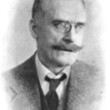To Siberia
(Book)
F PETTE
1 available
Copies
| Location | Call Number | Status |
|---|---|---|
| Central - Adult Fiction | F PETTE | Available |
Description
More Details
Notes
Subjects
Excerpt
Similar Titles From NoveList
Similar Authors From NoveList
Published Reviews
Publisher's Weekly Review
Evoking the severe beauty of the tundra his heroine dreams of, Petterson's second novel fashions a subtle stoicism reminiscent of Katherine Anne Porter's work. A unnamed narrator recollects her girlhood in Denmark, on a farm in Vrangbaek near Skagen, where she and her beloved brother, Jesper, live with their hymn-writing mother, carpenter father and stern grandfather. The family falls on hard times when their grandfather hangs himself, leaving behind the explanation, "I can't go on any longer." But the young girl endures the changes in her life, including the new rancor of the Nazi occupation of Denmark, by finding security and hope in her deepening relationship with Jesper. She and Jesper sense there is no future in Denmark and long to go elsewhere: she yearns for the cold stillness of Siberia, he for the desert tumult of Morocco. Jesper, a vivacious and sharp idealist ("I'm no peasant, I'm a proletarian," he shouts at the local baron), opens his innocent sister's eyes to the diminishing possibilities and hypocrisies of life in North Jutland. When the Nazis invade, Jesper joins the resistance and, under suspicion, flees to Morocco, leaving his worshipful sister behind. Instead of fulfilling her own goal of a Siberian idyll, she swallows her disappointment and her dreams of travel. Although Petterson addresses the impact of WWII, alluding to the resistance movement and the coexistence of gentile and Jewish Danes, the novel focuses on the profusion of little moments shaping the beauty and pathos of a stagnant life. In an infinitely sad but translucent ending in the vein of Porter's "Pale Horse, Pale Rider," the narrator says, "I was so young then, and I remember thinking: I'm twenty-three-years-old, there is nothing left in life. Only the rest." (Apr.) (c) Copyright PWxyz, LLC. All rights reserved
Library Journal Review
The realization of life's unfulfilled dreams is the theme of this beautifully written novel, which recounts the unnamed narrator's childhood and adolescence in a small Danish town. She dearly loves her brother, Jesper, the only person in her family she cares about. Her rigid, intolerant parents are unresponsive to her need for affection, scarred by the suicide of her grandfather and her mother's Christianity. Then the Germans bring World War II to their quiet world, and life changes. Jesper joins the underground and is forced to flee the Gestapo. Our narrator continues to dream of escape to Siberia, which in her imagination is an idyllic place where her wishes come true and she is happy. In the final pages, she comes to the realization that her parents are more intolerant than ever, her beloved brother is dead, and she will never be able to fulfill her dream. The author of a story collection and an earlier novel, Norwegian writer Petterson is an outstanding talent. Highly recommended.ÄLisa Rohrbaugh, East Palestine Memorial P.L., OH (c) Copyright 2010. Library Journals LLC, a wholly owned subsidiary of Media Source, Inc. No redistribution permitted.
Publishers Weekly Reviews
This 1996 novel predates Pettersen's acclaimed Out Stealing Horses (first published in 2003), and has all of Pettersen's haunted charms. As an unnamed young girl and her big brother, Jesper (who calls her "Sistermine"), grow up in rural WWII-era Denmark, the two cope with distant parents, an eccentric extended family and the cold wind. Jesper longs to go south to Morocco; Sistermine yearns for the plains of Siberia, foreshadowing lives that will diverge. Their grandfather's suicide, the arrival of puberty and most tragically, the German invasion change their idyllic childhood relationship; as each sibling fights back against the occupation in his or her own way, their inevitable separation looms. The second half of the novel, in which Sistermine struggles to make sense of her life in various Scandinavian cities and towns, awaiting a hoped-for reunion with Jesper, is less breathtaking and mesmerizing than the first, but the contrast makes her numb loneliness and inability to connect all the more poignant. The book builds up slowly, casting a spell of beauty and devastation that matches the bleak but dazzling climate that enshrouds Sistermine's young life. (Oct.)
[Page 28]. Copyright 2008 Reed Business Information.Reviews from GoodReads
Citations
Petterson, P., & Born, A. (2008). To Siberia . Graywolf Press.
Chicago / Turabian - Author Date Citation, 17th Edition (style guide)Petterson, Per, 1952- and Anne. Born. 2008. To Siberia. Saint Paul, MN: Graywolf Press.
Chicago / Turabian - Humanities (Notes and Bibliography) Citation, 17th Edition (style guide)Petterson, Per, 1952- and Anne. Born. To Siberia Saint Paul, MN: Graywolf Press, 2008.
Harvard Citation (style guide)Petterson, P. and Born, A. (2008). To siberia. Saint Paul, MN: Graywolf Press.
MLA Citation, 9th Edition (style guide)Petterson, Per, and Anne Born. To Siberia Graywolf Press, 2008.































